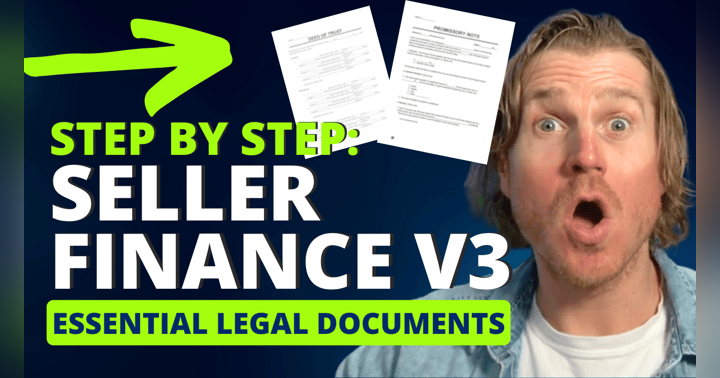The Death Of REI - Joe Biden's Plan To Crash The Real Estate Market

The Death Of REI - Joe Biden's Plan To Crash The Real Estate Market
Whether you are a real estate investor or not, you better buckle up because a bad storm may be coming to the real estate market, and it's all thanks to Joe Biden. His latest proposed plan, The Deal of REI, could have catastrophic effects on the market and could lead to the crash of real estate investing as we know it. Keep reading to find out more about what this plan entails and how it could impact your financial future.
Real estate investing has long been a popular method for building wealth and securing one's financial future. One of the many reasons for this is the tax implications associated with real estate investments. However, a 1031 exchange, also known as a like-kind exchange, has made real estate investing even more attractive to investors. A 1031 exchange allows a real estate investor to sell a property and reinvest the proceeds into a new property without having to pay capital gains taxes on the sale. The proposed elimination of 1031 exchanges by the Biden administration could have significant negative impacts on the real estate market and the economy as a whole. In this article, we will discuss the five major catastrophes that could result from the elimination of 1031 exchanges and why this should matter to both real estate investors and non-investors alike.
Reduced Investment Activity: 1031 exchanges incentivize real estate investors to buy and sell properties, which increases investment activity and liquidity in the real estate market as a whole. Without like-kind exchanges, many real estate investors will be less inclined to sell their properties, leading to a shortage of homes for sale or rent. This could drive up property values and rental rates, making it more difficult for Americans to afford housing in an already challenging affordability housing crisis.
- Negative Impact on Small Businesses: Many small businesses rely on 1031 exchanges to reinvest in new properties and upgrade their facilities as their companies grow. Eliminating 1031 exchanges could make it more difficult for small businesses to access capital and expand their operations, ultimately having a domino effect that goes far beyond the real estate economy.
- Reduced Economic Growth: Real estate investment and development activity support jobs and economic growth. Eliminating 1031 exchanges could reduce investment activity and demand, leading to slower economic growth and job creation, which could ultimately impact the financial security of everyday Americans.
- Increased Tax Liability: Real estate investors who use 1031 exchanges to defer capital gains taxes on property sales would face increased tax liability if this tax-deferred exchange were eliminated. This would reduce the amount of money available for reinvestment back into real estate and slow down the growth and velocity of real estate activity altogether.
- Long-term Revenue Loss for the Government: While the purpose of doing away with 1031 exchanges would be to generate more taxes, it may actually do the opposite long-term. Many taxes and fees are associated with buying and selling real estate, and doing away with 1031 exchanges could reduce investment activity and slow down the real estate market as a whole, ultimately resulting in fewer taxes collected over time.
Real estate investing is a significant contributor to the economy, supporting jobs and economic growth. The elimination of 1031 exchanges could lead to a decline in investment activity and demand, ultimately having larger impacts on the financial security of everyday Americans. While any final version of tax legislation is subject to negotiation and compromise in Congress, the fact that the proposed elimination of 1031 exchanges is being brought up again and highlighted as one of the main ways to close the debt gap isn't a good sign for investors and the real estate economy as a whole. It remains to be seen whether these proposals will go through, but it's crucial to stay informed and understand the potential consequences for both real estate investors and non-investors.
Click HERE to watch the full video!





